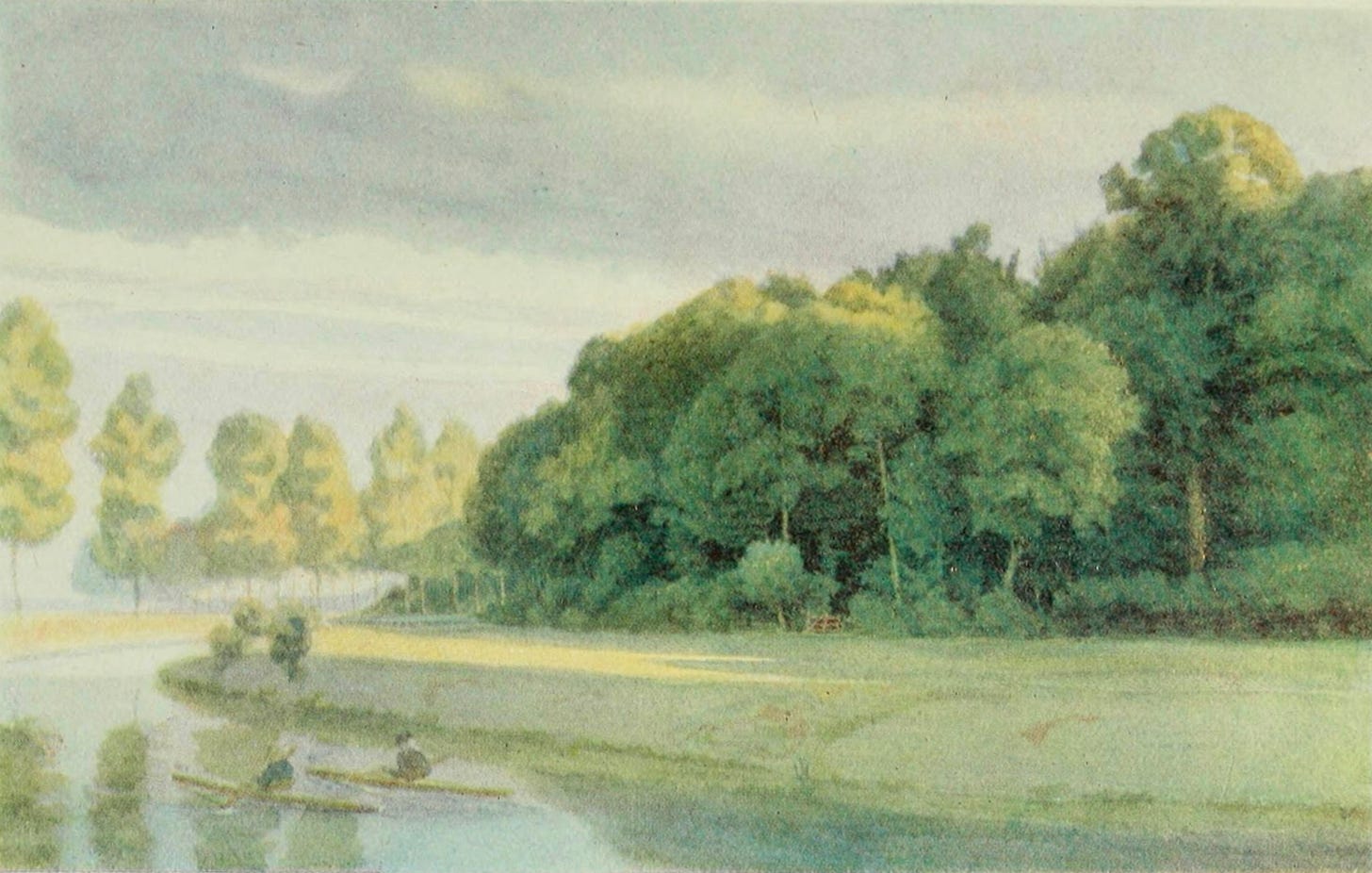
Robert Louis Stevenson wrote in his first book, An Inland Voyage,
An imperturbable demeanour comes from perfect patience. Quiet minds cannot be perplexed or frightened, but go on in fortune or misfortune at their own private pace, like a clock during a thunderstorm.1
It is a surprising couple of sentences, almost religious in tone, amidst lighthearted “philosophical” reflection and an invitation to repose.
But what is a quiet mind? And is it desirable? Should, and can, one be independent of the tempo of things going on around one? What is this "tick-tock" in a thunderstorm? Perhaps the storm could also be seen as an argument or someone losing their temper or their cool. It seems good to be able to remain with a still inward centre of gravity when externally things are agitated, that is, with others, even a crowd, when emotions are running high. How can I remain free of the hypnotising influence of others' uncontrolled emotions?
Even more, how can I remain free inside when my own emotional state is affected, that is, when the storm is within? Is it possible to be within the eye of the storm, the calm place, even then?
